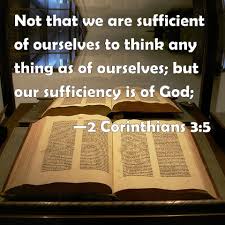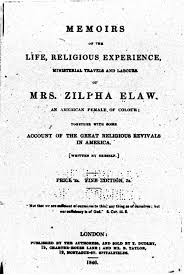
In spite of the continuing racism and sexism in the United States, black women have not allowed the discrimination to keep them from following their callings from God to serve in His kingdom. What may be very surprising to some is that even black women who were living in the time of slavery in the United States had the courage to rise above their circumstances and obey God’s command to take the gospel to the lost.
We began this series by sharing the story of the first black female writer to be published – the poet Philis Wheatley. We continued our series with an emancipated slave who became a black itinerant evangelist, abolitionist, women’s rights activist and writer – Sojourner Truth. For the next few weeks we will relate the stories of black female preachers from the nineteenth century. Yes, you read this right – there were many courageous black women who preached as the Holy Spirit moved them. Many thousands of people were led to Christ through their ministries. Anyone – female or male, black or white, poor or rich, may share the Gospel (Joel 2:28 and Galatians 3:28). We started the series of black women preachers with Jarena Lee.
Last week we turned to the story of a woman who was not a slave, but still lived under the shadow of its evil. Zilpha Elaw accepted the love of Christ and then spent the rest of her life telling others about the wonderful Savior.
Zilpha Elaw – Evangelist
Those who trust in the Lord are as Mount Zion, which cannot be moved but abides forever. Psalm 125:1.
Last week we began the story of Zilpha Elaw, an early nineteenth-century black female evangelist. We saw that Zilpha had married in 1810, had a daughter the following year, and was widowed in 1823 at age 32. We now pick up our story at that point.
Zilpha Elaw continued to work to support herself after both her husband and her sister died. She had long ago received a call from God to go out and preach the Gospel. She kept putting it off because she did not feel worthy to do so. She was uneducated compared to other ministers who had been to seminary. Zilpha was also worried about the fact that she was black. She prayed to God, “Lord! Send by whom thou wilt send, only send not by me; for thou knowest that I am ignorant; how can I be a mouth for God! — a poor, coloured female; and thou knowest we have many things to endure which others do not.”[1]
Zilpha had not yet learned the lesson from 2Corinthians 3:5 (“Not that we are sufficient of ourselves to think anything as of ourselves, but our sufficiency is from God.”). God answered her objection, “What is that to thee? Follow thou me.”
Placing her child with some relatives, Zilpha began her journey of preaching salvation to lost souls. She would travel to many states including the slaveholding states in the South. Here she ran the risk of being kidnapped and sold into slavery. The Lord protected her; she preached to both black and white folks. Some wealthy white people put her under their wings, caring for her even when she got ill.
Many people came to the Lord because of her preaching and at least one person was healed. Though Zilpha was worried that being black and a female would be detrimental, those factors are actually what attracted people to come and hear her. Some came out of curiosity; a few even came to mock her, but most were genuinely convicted and came back to hear her preach again. More than a few women would weep and beg her to pray for them at the meetings. Some of these women would become life-long friends.
Zilpha encountered many obstacles throughout her ministry. Besides young men who would come to the meetings specifically to hassle her, there were other church members and church leaders who opposed her because of her gender or color. Often these turned out to be people who were jealous of the reception that she got wherever she went. Sometimes after they heard her preach, they would repent of their attitude, ask her forgiveness and encourage her to continue on.
One example of this was a Presbyterian minister, Rev. Mr. House, who declared that he would have her stopped when she came to his city of Hartford. While in that city, Zilpha visited a very sick man and prayed for him. He immediately got so much better that his attending physician declared that he would like to go and hear Zilpha preach. After hearing her, the physician visited Rev. House and told him all that he had witnessed. Rev. House changed his mind about stopping Zilpha exclaiming, “Well, if God has sent her, I bid her God’s speed.”[2]A revival broke out in Hartford among the people of every denomination.
Zilpha also encountered those who were skeptical of traditional, Evangelical Christian beliefs. Universalism was taking hold in the Northeastern United States at this time. The Universalists not only believed that everyone would be saved, thereby denigrating the cross of Christ, but they behaved as Deists, denigrating the immanent power of our Sovereign God. Many of these people came to hear her preach and she was able to exhort them in the whole Gospel including repentance for sin and genuine faith in a crucified Redeemer. She preached that mankind was lost and in need of a Savior. She warned them to flee from the wrath to come. Some did turn and believe.
By the nineteenth century the different denominations had separated themselves from each other. There was a group of women however who held monthly union prayer meetings together. This brought them into closer contact with each other as well as allowed them to share Christian love free from bigotry. Zilpha loved these meetings and was delighted to hear Episcopalians, Presbyterians, Baptists, and Methodists sharing the Gospel truth as one. She said, “The Christian church should manifest one fold and one shepherd; one body and spirit; one hope, one Lord, one faith, one baptism; and one God and father of all who is above all, and through all, and in all” (Ephesians 4:4-6). Indeed, Amen!
Of course, Zilpha missed her daughter. Eventually her daughter married and had two sons. Zilpha was very close to her daughter and grandsons.
Zilpha had received a vision some years before this promising her that she would travel to London. Zilpha was never sure how this could come about, and she argued the matter with the Lord in prayer, pleading her ignorance, her sex, her color, and her inability to minister the Gospel in a country “so polished and enlightened, so furnished with Bibles, so blessed with ministers, so studded with temples; but the Lord said, ‘say not, I cannot speak; for thou shalt go to all to whom I send thee, and what I command thee, thou shalt speak’.” (Jeremiah 1:7).
The Lord opened the way for her in 1840. She went home for a short time and spent some time with her daughter and two grandsons. The parting was tearful when it was time for her to leave for New York. From there she traveled to Philadelphia, then went by ship to London. Zilpha preached over one thousand sermons over a five-year period in England. She lived on the edge of poverty and endured “a thousand privations, hardships, targetfires, vexatious anxieties and deep afflictions, to which my previous life was an utter stranger.” She was occasionally ill, even near death, but the Lord sustained her.
While in England, Zilpha published her memoirs. Nearing the end of her life, she exhorts all her readers to stand fast in their faith. “Dear brethren, the time is short, it is ominous, and it is perilous; be steadfast, unmovable, always abounding in the work of the Lord.”[3]Truly, Zilpha Elaw practiced what she preached. She is a model for us of a courageous woman who put aside all of her own feelings and wants and made herself totally available to God.
There is a hint near the end of her memoirs that she wants to return to the United States, but we don’t know whether or not she did. There is up to now no further information about her life after 1845. We can be sure that she is in Heaven rejoicing with all of the other saints including many that she had the privilege to lead to Christ.
[1]“Memoirs of the Life, Religious, Experience, Ministerial Travels, and Labours of Mrs. Elaw.” in William, L. Andrews. Sisters of the Spirit: Three Black Women’s Autobiographies of the Nineteenth Century. (Bloomington, IN: Indiana University Press, 1986). pages 87-88.
[2]Ibid. page 105.
[3]Ibid. page 160.


